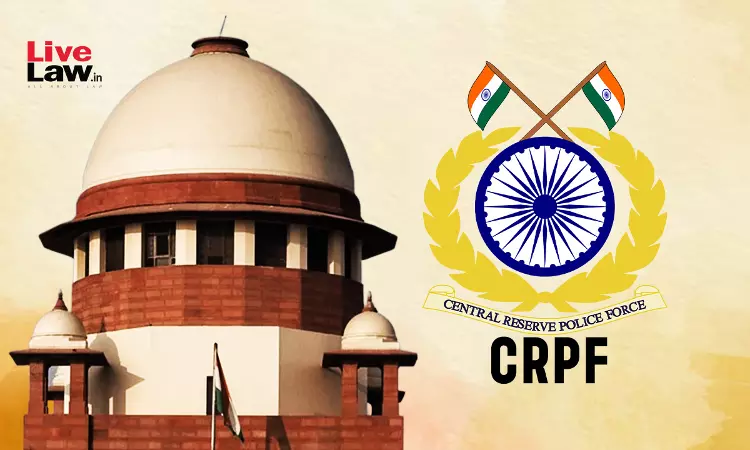Supreme Court Upholds Centre's Rule Prescribing 'Compulsory Retirement' As Punishment For CRPF Personnel
Anmol Kaur Bawa
11 May 2024 12:40 PM IST

Next Story
11 May 2024 12:40 PM IST
The Supreme Court in a recent judgement held that 'compulsory retirement' under the Rules of Central Reserve Police Force (CRPF) was validly within the purpose of maintaining 'disciplinary control' over the force under the CRPF Act 1949.The bench of CJI DY Chandrachud and Justices JB Pardiwala and Manoj Misra held that the provision of minor punishment under S. 11 of the CRPF Act...
